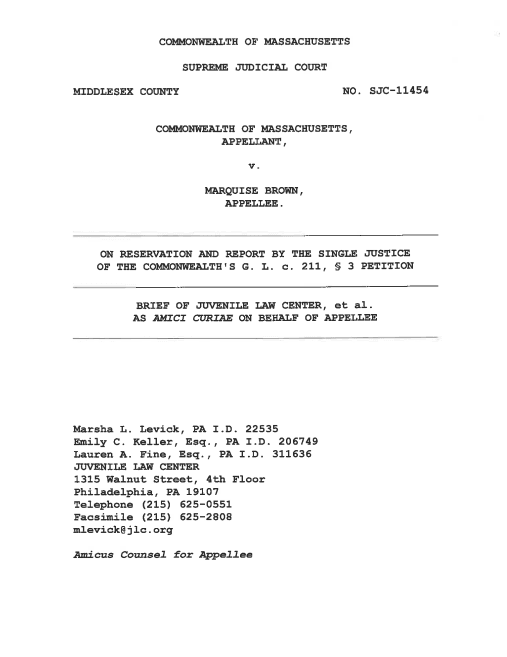
Summary of Argument
In *Miller v. Alabama*, 567 U.S. ___, 132 S. Ct. 2455, 183 L.Ed.2d 407 (2012), the United States Supreme Court held that the mandatory imposition of sentences of life without the possibility of parole on juvenile offenders convicted of murder is unconstitutional. Under Massachusetts law, any juvenile fourteen or older convicted of first degree murder must be sentenced to life without parole. This statutory scheme is now unconstitutional. In the absence of any action by the legislature, this Court must look to existing statutes to determine what constitutional sentence may be imposed on juveniles convicted of homicide. In Massachusetts, the only constitutional statutory sentence available is the sentence for lesser included offenses. Therefore, this Court should hold that the appropriate remedy for juveniles convicted of first degree murder is to impose the current statutory sentence for the lesser included offense of manslaughter. This approach is consistent with precedent and with adolescent development.